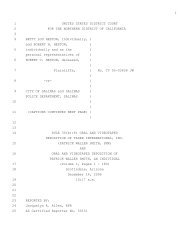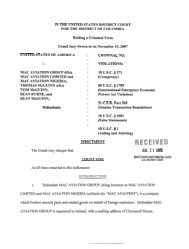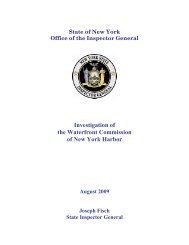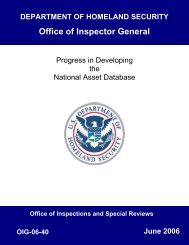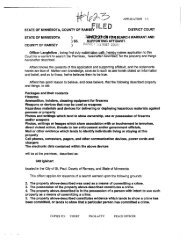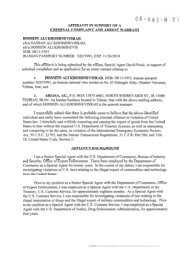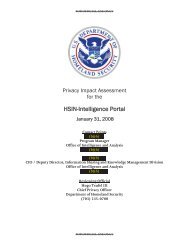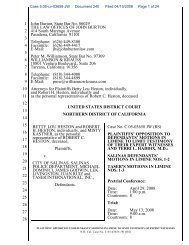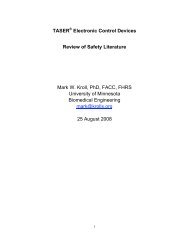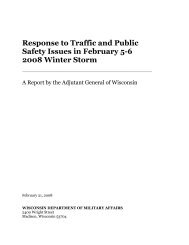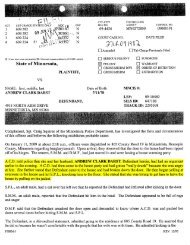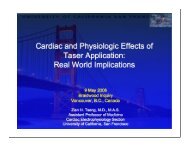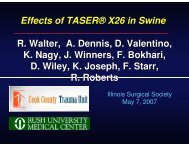04-473 - Garcetti v. Ceballos - Supreme Court of the United States
04-473 - Garcetti v. Ceballos - Supreme Court of the United States
04-473 - Garcetti v. Ceballos - Supreme Court of the United States
You also want an ePaper? Increase the reach of your titles
YUMPU automatically turns print PDFs into web optimized ePapers that Google loves.
Cite as: 547 U. S. ____ (2006)3BREYER, J., dissentingLike <strong>the</strong> majority, I understand <strong>the</strong> need to “affor[d]government employers sufficient discretion to manage<strong>the</strong>ir operations.” Ante, at 11. And I agree that <strong>the</strong> Constitutiondoes not seek to “displac[e] . . . managerial discretionby judicial supervision.” Ibid. None<strong>the</strong>less, <strong>the</strong>remay well be circumstances with special demand for constitutionalprotection <strong>of</strong> <strong>the</strong> speech at issue, where governmentaljustifications may be limited, and where administrablestandards seem readily available—to <strong>the</strong> pointwhere <strong>the</strong> majority’s fears <strong>of</strong> department management bylawsuit are misplaced. In such an instance, I believe thatcourts should apply <strong>the</strong> Pickering standard, even though<strong>the</strong> government employee speaks upon matters <strong>of</strong> publicconcern in <strong>the</strong> course <strong>of</strong> his ordinary duties.This is such a case. The respondent, a governmentlawyer, complained <strong>of</strong> retaliation, in part, on <strong>the</strong> basis <strong>of</strong>speech contained in his disposition memorandum that hesays fell within <strong>the</strong> scope <strong>of</strong> his obligations under Brady v.Maryland, 373 U. S. 83 (1963). The facts present twospecial circumstances that toge<strong>the</strong>r justify First Amendmentreview.First, <strong>the</strong> speech at issue is pr<strong>of</strong>essional speech—<strong>the</strong>speech <strong>of</strong> a lawyer. Such speech is subject to independentregulation by canons <strong>of</strong> <strong>the</strong> pr<strong>of</strong>ession. Those canonsprovide an obligation to speak in certain instances. Andwhere that is so, <strong>the</strong> government’s own interest in forbiddingthat speech is diminished. Cf. Legal Services Corporationv. Velazquez, 531 U. S. 533, 544 (2001) (“RestrictingLSC [Legal Services Corporation] attorneys in advising<strong>the</strong>ir clients and in presenting arguments and analyses to<strong>the</strong> courts distorts <strong>the</strong> legal system by altering <strong>the</strong> traditionalrole <strong>of</strong> <strong>the</strong> attorneys”). See also Polk County v.Dodson, 454 U. S. 312, 321 (1981) (“[A] public defender isnot amenable to administrative direction in <strong>the</strong> samesense as o<strong>the</strong>r employees <strong>of</strong> <strong>the</strong> State”). See generallyPost, Subsidized Speech, 106 Yale L. J. 151, 172 (1996)



